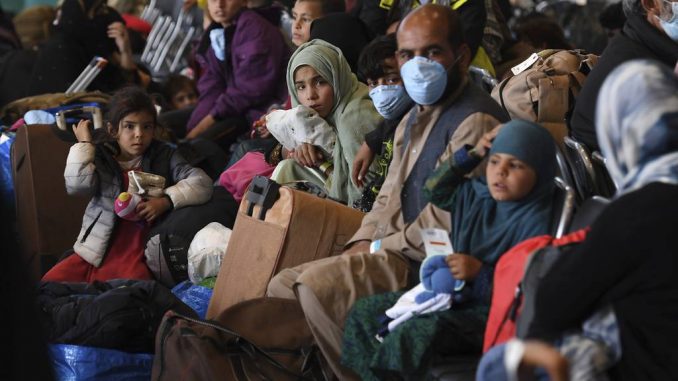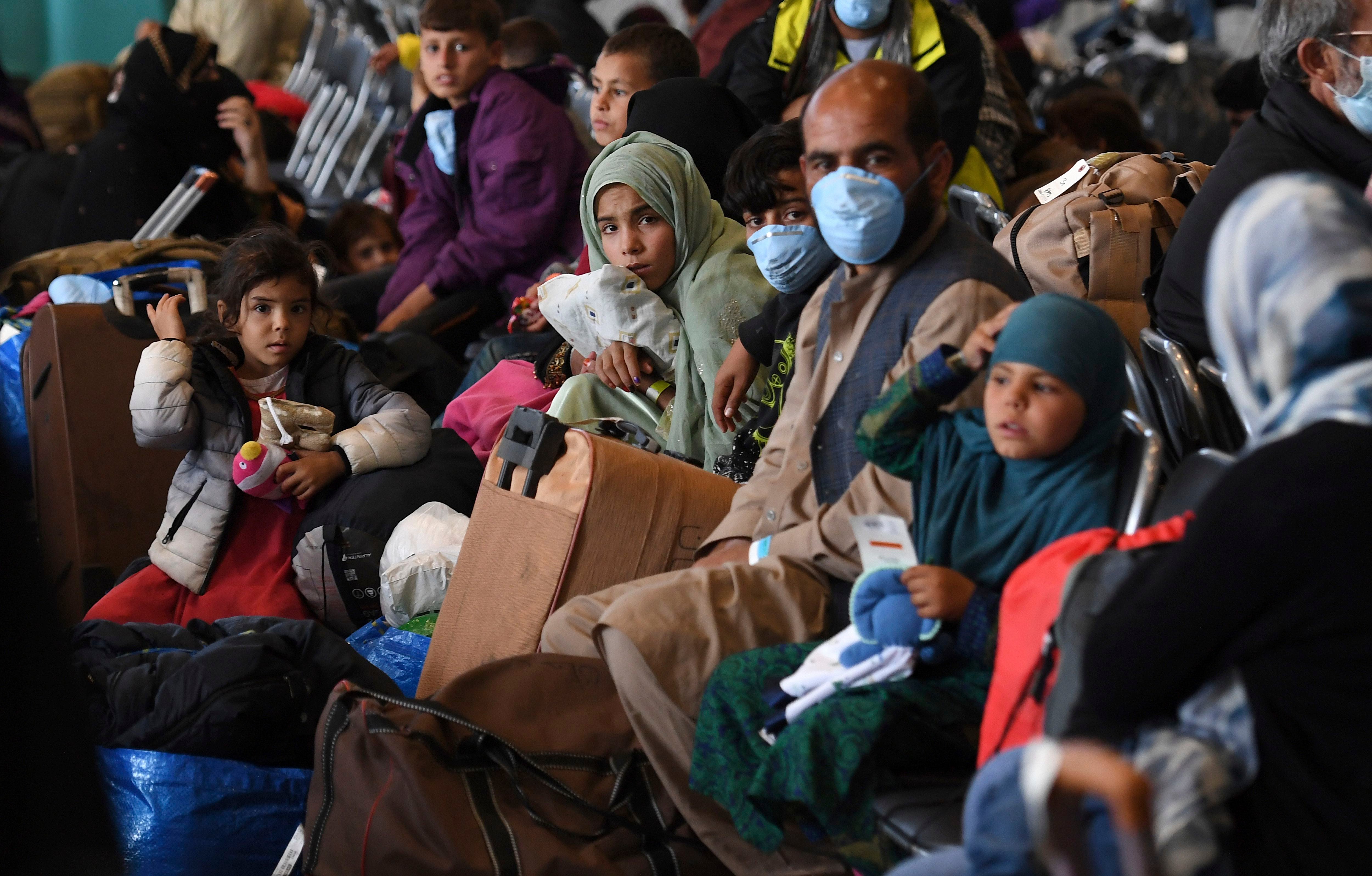

The Departments of Defense and State will meet with groups such as Digital Dunkirk, Pineapple Express, Allied Airlift 21 and others to find a way to evacuate American citizens and Afghan allies, several members of those groups told Military Times.
“We are working with the Department of State, Department of Defense, and other government institutions to develop a common picture and understanding of the situation of American citizens, legal permanent residents, and other at risk groups in Afghanistan,” Alex Plitsas of Digital Dunkirk told Military Times.
Neither the Defense Department nor State Department immediately responded to requests for comment.
Fearing that opportunities to rescue American citizens and Afghan allies from Afghanistan may soon evaporate, the organizer of one such effort wants the Departments of Defense and State to create a “brick and mortar” operations center to work with private groups.
“We need a brick-and-mortar, task force relationship,” said Scott Mann, organizer of the Pineapple Express operation that helped get hundreds of Afghan special operations forces members and their families out of Afghanistan before U.S. troops departed Aug. 31. “If we could do that, we could help a lot of people. If we don’t do that, this is all a lot of political banter, but there’s no substance to it.”
Mann and other private citizens, mostly veterans, who are working to help thousands get out of Afghanistan, said they already have the support of Army Gen. Mark Milley, chairman of the Joint Chiefs of Staff.
“So far, he’s really stepped up,” Mann said of Milley, with whom he met last week to explore this issue. “He contacted us. He said, ‘I want to cooperate, I want to work together.’ He’s the one that’s pushed for the task force. He’s the one that’s pushed for getting everybody together. He’s the one that keeps pressing for urgency on it.”
A spokesman for Milley did not immediately return a request for comment.
Time to help may be winding down, said Mann and individuals who requested anonymity because of the sensitive nature of the situation.
“This is a really pressing situation, and it is going to get worse,” Mann said. “Every day that goes by, is one day closer to not being able to get people out of that country.”
Adding to the urgency is the concern that at some point, the Taliban will cut off access to phones, the internet and messaging apps that have been key to communicating with people trying to find safety and leave, Mann said.
There are, however, still humanitarian efforts to help those in Afghanistan underway. But at least eight chartered flights to get people out of Mazar-e-Sharif are being held up awaiting Taliban permission, according to an individual from the organization that requested anonymity.
Like most organizations, the Pineapple Express and Allied Airlift 21 have stopped on-the-ground evacuation efforts, and instead have shifted to setting up a task force with U.S. government officials and working to help Afghans who are already on the way or in the U.S.
A physical task force operations center could aid that effort as well, said Mann, a retired Green Beret lieutenant colonel who spent a decade in Afghanistan and helped create the Village Stability Operations program designed to teach Afghans how to defend themselves.
“It’s where the civilian citizen liaison networks could literally collaborate, plan, deconflict and work opportunities with the relevant government agencies,” he said. “It would be like an operations center, and not just on safe passage, which is the most important right now because people are being executed, but also on resettlement, reintegration, and resilience. Let’s put it all together, and let’s work the whole journey of the refugee all the way down to the individual trauma, so that we don’t have diasporas.”
The key, said Mann, is to prevent “Afghans from feeling like they’re excluded from American society. And all of the trauma and stuff they’ve been through is actually addressed at a human level the human rights so that the quality of care that they need is actually there. The only way we’re going to get that is if we get out of this bureaucratic doublespeak, and create an op center for the citizens are already stepping up. And so it would really be in the government’s best interest to pay attention to what their citizenry is doing, particularly the veteran population.”
Mann has created Task Force Pineapple, a non-profit organization to raise funds to assist Afghans coming to the U.S.
As for American citizens and Afghan allies wanting to evacuate, both Mann and Mike Jason are urging them to find a safe location, stay off the net as much as possible, and wait for help.
Jason, a retired Army colonel who commanded troops in Afghanistan, said that the last thing that’s needed right now “are cowboys going around doing crazy stuff that could potentially endanger any larger diplomatic effort that might be happening with the United States government and potentially the Taliban.
“We are trying to get tens of thousands of people out, not just your buddy or your interpreter,” he said. “We’re all kind of at an impasse going ‘okay, what’s the next move and how can we help that next move?’”
Howard Altman is an award-winning editor and reporter who was previously the military reporter for the Tampa Bay Times and before that the Tampa Tribune, where he covered USCENTCOM, USSOCOM and SOF writ large among many other topics.


Be the first to comment